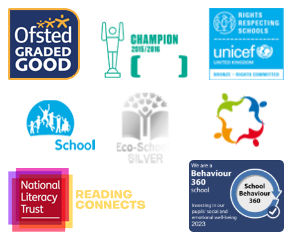At St Mary’s, we base our planning of history through specific Project Values, the KS1 and KS2 national curriculum, a set of four project values (also linked to Religious Education) and a question allocated to each year group (medium-term planning). This gives the children an opportunity to link major events from the past to values and faiths that are still relevant and practiced today.
Furthermore, this type of planning encourages a consistent, in-depth teaching of history, especially with the interesting and beneficial cross curricular links. It facilitates the opportunity for St Mary’s children to focus their historical enquiry, knowledge and analysis of sources to a gradually formed answer to their class question.
History planning is devised through professional discussion with teaching staff, the history leader and the Senior Leadership Team (SLT); it meets the requirements of the National Curriculum, which is organised in our school ‘National Curriculum Ladders’. This facilitates the opportunity for skills learnt in previous years to be reinforced to encourage yearly progression and highlight links. Furthermore, for each history topic, children are exposed to key vocabulary to make their historical learning valuable, relevant to the period of history and linking to their project values. Children are challenged at St Mary’s by being encouraged to engage with and answer ‘Deeper thinking Questions’.
History is taught mainly during our Discover Projects (Autumn Term). Other opportunities for developing history skills and knowledge and to support children’s long term memory development are planned into the Explore and Express projects (Spring and Summer Term, depending on year group). The focus of our history studies enables pupils to engage with their Project Question and Project Values. For example, Year 5 ask: ‘Does history remember everyone fairly?’ and study the values of: ‘Power, Fairness, Justice, Influence and Respect’. They explore the history of the Ancient Egyptians, and without glorifying the Pharaohs, who enslaved many people, explore what life was like in the ancient civilisation. They also investigate the discovery of the Rosetta Stone and question why it is currently held by The British Museum. They answer questions like: ‘Whose history is most important?’
Across the school we learn about the Solo Taxonomy verbs of: Describe, Analyse and Evaluate. We use these verbs to layer challenge into our study of sources. Teachers use this vocabulary, alongside class discussion, to ensure all pupils can engage with sources with historical relevance. During history lessons, children have the opportunity to work independently, with a partner or in mixed ability groups to enable everyone to engage with our history curriculum.







